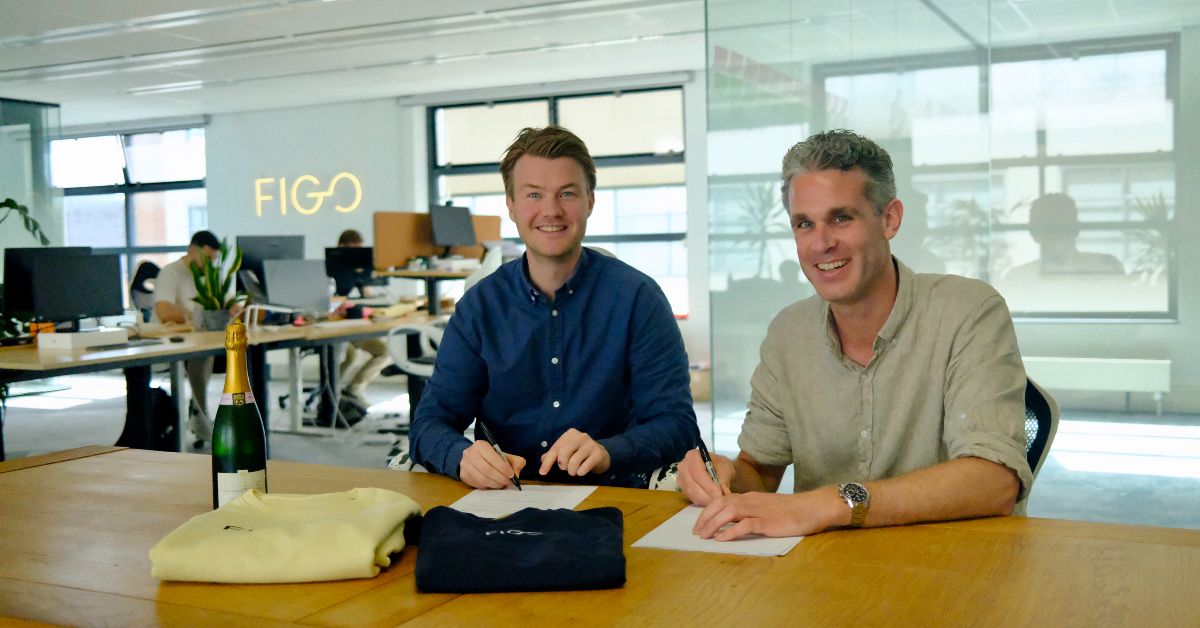While COVID-19 outbreak and the corona crisis paralyse the global economy — for early-stage businesses — the global pandemic has brought about a load of new financial challenges.
And being a woman in a technology startup world seeking funding or executing business growth during a pandemic doesn’t make things easier. Instead, it is a bigger challenge!
Do follow our special coverage on coronavirus over here.
Plugify, also known as the ‘Booking.com of live artists and music bands’ — founded by Eline Leijten, one of the most inspiring faces of women-led startups in the Netherlands — declared bankruptcy recently. While it is yet not confirmed whether it has anything to do with coronavirus outbreak or not but as per experts many European female founders have started to worry about the potential side-effects that the COVID-19 pandemic would have on their businesses.
Established in 2015, Plugify has been an online marketplace for booking live music performances. Headquartered in Amsterdam, this platform enabled artists to create a page free of charge and makes visitors quickly and easily book a performance with immediately visible prices.
Now, this is the message showing on their official website.
“Dear Plugify user, Due to the uncertainty that characterises the current time and the uncertainty surrounding the duration of the applicable government measures to combat the Covid-19 pandemic, it is currently not possible to finalise your booking via Plugify. We are happy to come back to you as soon as we can provide you with more clarity. If you wish to receive an update, we ask you to send a message to [email protected]. We hope to be able to provide you with more information shortly. Thank you for understanding. With kind regards, Team Plugify.”
In such a scenario, we at Silicon Canals tried to reach Eline Leijten; however, she was not available to comment on the news. But, if you’re a female entrepreneur reading this piece, you don’t have to feel anxious about the current situation, and we’re not going to bother you with despair. As this story is all about — how female-led tech startups are doing an outstanding job in their response to the coronavirus crisis.
After all, what do countries/states/territories with the best coronavirus responses have in common? They are all led by women; an interesting observation made recently by social media users as they shared collages of women leaders while pointing out how they are doing a disproportionately better job at handling the pandemic recently.
Silicon Canals decided to reach the leading female entrepreneurs of Amsterdam including Wendy Bogers from Ligo, Thalita van Ogtrop, co-founder of The Next Closet, and Diane Janknegt, founder of Wizenoze to understand how their business got impacted initially? And then, what kind of solutions they came out with to battle against this situation like an inventive entrepreneur. Further, they also tell us, what kinds of changing trends they’re noticing in their business and more.
“Online buying is increasing”
Based out of Amsterdam, The Next Closet is an online peer-to-peer marketplace in the Netherlands for secondhand designer clothes and accessories.
When we asked Thalita van Ogtrop, co-founder of The Next Closet, on how the pandemic has impacted their business? She says, “Right now, I can, fortunately, say that The Next Closet is doing very well. People are at home decluttering wardrobes and selling their clothes online. Simultaneously as many physical stores are closed, we see the online buying intention increase. Also, many people are more and more into buying secondhand fashion items because of the sustainability aspect. This makes us very happy as this is the key reason why we started The Next Closet.”
Founded in 2013, and with €3 million funding raised so far, the Dutch online e-commerce startup focusses specifically on women looking for affordable high-end designer fashion. In fact, The Next Closet also allows users to ‘follow’ each other’s closets and share items on social media.
“Not planning any layoffs”
When asked Diane Janknegt, founder of Amsterdam-based edtech platform Wizenoze — how was the company doing during these extraordinary times, she was quite positive and says, “Currently, over 1.5 billion students globally have to go online to get an education at home. So for everybody who has a digital or online proposition, this is a huge opportunity to accelerate their business.”
Wizenoze was established in 2013 for learners of all ages. A simple Google search leads to a wide range of results that are not relevant for learning, not reliable and certainly not tailored to their reading level, Wizenoze uses AI to create a clean and clear ‘internet for learning’, where students can easily find reliable, relevant and comprehensive information from the best that the internet has to offer.
In these unprecedented times, the startup with a team of around 20-25 people, is all gushed to cruise through the challenges along the way. In fact, Janknegt revealed that they’re currently “hiring instead of firing.”
Janknegt says, “I’m not planning any layoffs at all, not even salary reductions. I’m doing my best to avoid that. And I’m also opening up a beautiful position that I might be able even to fill up soon.”
“Change is necessary and should be permanent”
Another Dutch startup Ligo, which operates from Amsterdam and automates legal groundwork is run by a very talented woman entrepreneur, Wendy Bogers. The legal tech startup also felt the impact, but they implemented changes as per changing customer’s demands.
“From a financial standpoint, we felt the impact like other businesses. An important share of the services we provide is related to the incorporation of businesses, so in times like this when economic confidence declines so strongly, we definitely feel it. From an operation standpoint, COVID19 has disrupted the delivery of some notarial services and brought to the surface the need to change the law to allow notaries to use technology to operate. For example, for arranging a will (testament) it is required by law to have a face-to-face meeting with the notary. But how can notaries do this under COVID19? The government has passed an ’emergency law’ to allow notaries to use video calls for executing wills, but, we believe this change should be permanent,” says Wendy Bogers, CEO and co-founder, Ligo.
Founded in 2015, Ligo is an online platform for legal services and contract lifecycle management. The startup lets large organisations automatically generate, negotiate, manage and sign their contracts.
Commenting on the current strategies, Bogers adds, “Ligo’s overall strategy is working well, but at a tactical level, we adjusted to COVID-19. We shifted focus to services which increased in demand. Furthermore, we elevated our marketing with advice and suggestions for people on how to deal with some of the (business) problems related to COVID-19. Our customer service team is championing customer onboarding to offer support and advice regarding legal challenges, such as contract terminations and employment law issues.”
“Lower costs, grow faster”
Further on strategies, Janknegt opines, “I think its time to do a real deep dive on your cash flow. Look at your runway; analyse what kind of cost can be cut? And if you can, apply for some of the support of the government.”
She also appreciated the government support and says, “I’m definitely making use of the support of the Dutch government, which is working out great for us.”
Thalita also agreed with this and says, “We had a look at our costs and did a thorough brainstorm, where we could be more competitive and creative. We also identified some pockets of growth that we are exploring. In sum, it comes down to where can we lower our costs and where can we grow more or faster.”
The sudden forced working from home and staying indoors can be challenging. In this regard, several women leaders around the world have voiced their concerns over the deadly virus and suggested ways to cope with it.
“Work on your core asset”
While sustaining a business isn’t a walk in the park during these COVID times, we asked the three female founders to share their best tips on survival.
On this Janknegt says, “You first became an entrepreneur because you have the ability to think on opportunities and their solutions. And your core asset as an entrepreneur is clearly being challenged. Remember, every negative situation has the ability to turn it around into an opportunity. I would say use that core competence of yours and think on opportunities, possibilities, and try to not listen to too many negative stories, but find a new opportunity that might be completely different from what you had expected.”
“Don’t loose focus “
Thalita adds, “Keep yourself sane and healthy; then you’ll have all the energy to keep your team vibrant and active. Also, invest a lot in communications to your customers and your team. Last but not the least focus on what do you really want to achieve the coming year and why?”
“Communicate with your network”
Further, Bogers concludes, “Approach other founders to talk about the struggles and share notes. You are not alone in this, and it is so valuable to hear how they are tackling the challenges. When something like COVID-19 hits business, it is great to see what kind of creative solutions are being implemented by founders.”
Across every sphere, from health to the economy, security to social protection, the impacts of COVID-19 are exacerbated for women and female-owned businesses. However, if with a positive outlook we keep pushing for change and propel to do what really matters, then we can even grow in these difficult times.
Are you a female founder? Want to share your pandemic story? Write to us at [email protected].
This article is produced in collaboration with StartupAmsterdam. Read more about our partnering opportunities.
Main image credits: Last Duchess/Shutterstock










01
From telecom veteran to Dutch Startup Visa success: The Jignesh Dave story